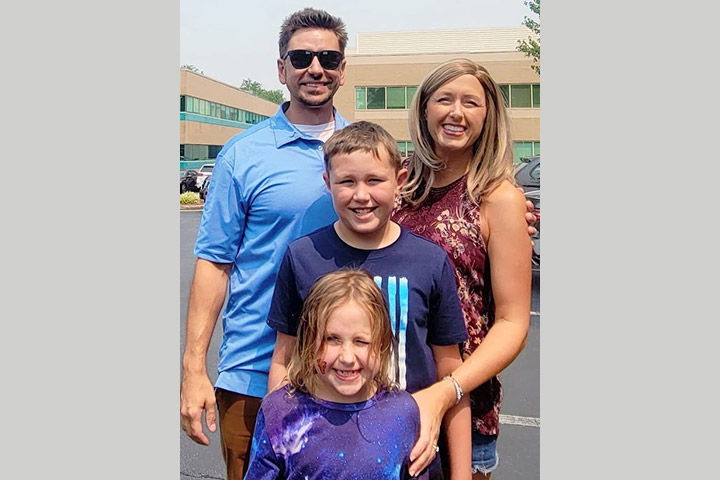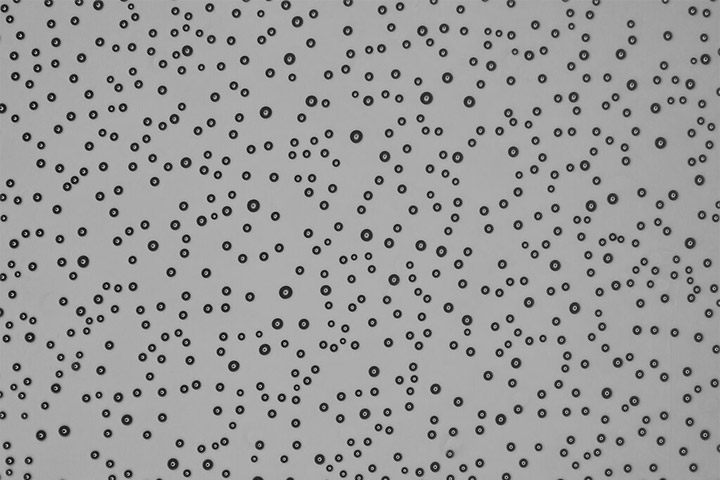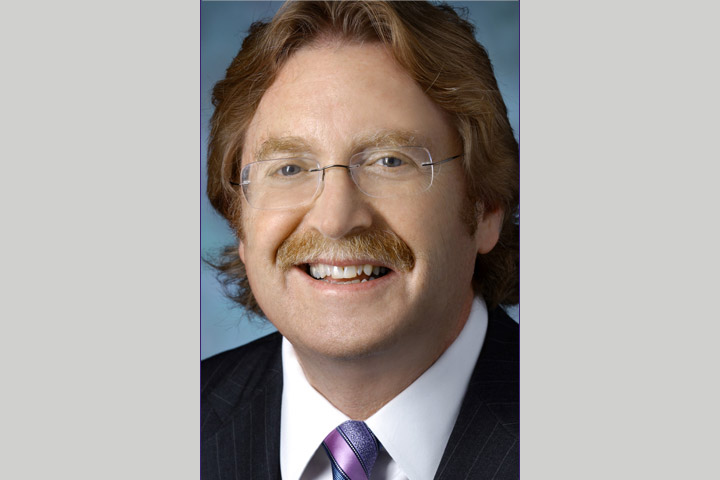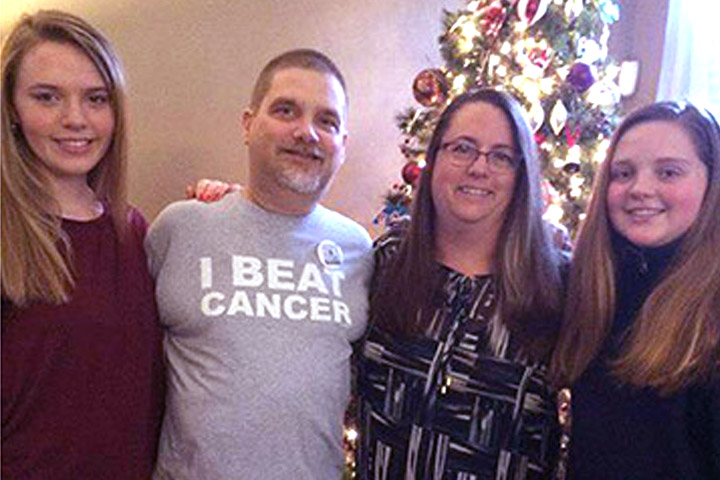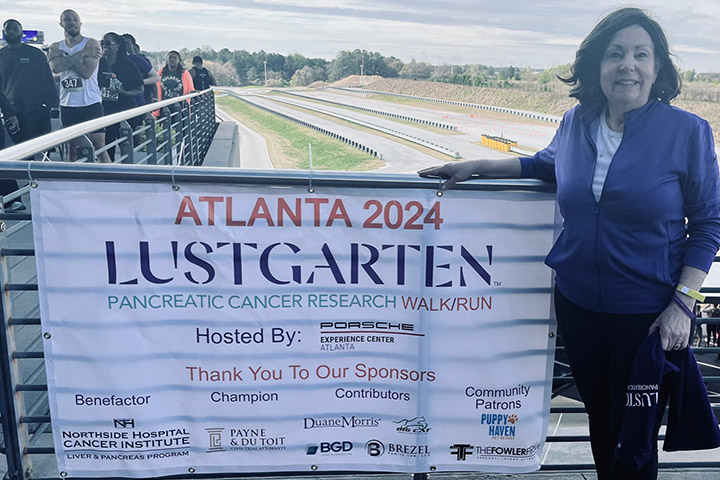Genetic Testing Leads Me to a PARP Inhibitor Trial
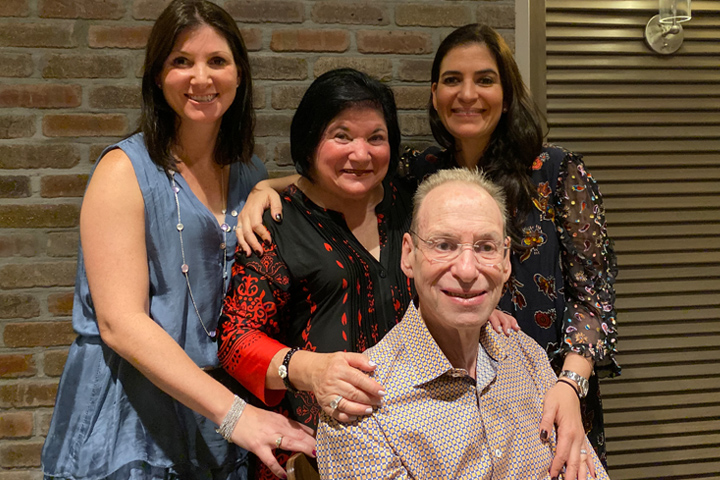
- Stage IIb pancreatic cancer
- Chemotherapy, radiation, and surgery
- Genetic testing shows I carry the BRCA2 mutation
- The cancer returns; I join a clinical trial for a PARP inhibitor
I am 73 years old and I was diagnosed with stage IIb pancreatic cancer in mid-June 2017.
In April and May of 2017 I went to my primary care physician, Dr. Hermann Stubbe, at Cleveland Clinic Florida (CCF) in Weston, because I was having persistent abdominal pain. He ordered lab tests and a CT scan. I have type 2 diabetes, and the lab tests showed elevations in my A1C. A mass was found in my pancreas on the CT scan. I was referred to Dr. Ronnie Pimentel, a gastroenterologist at CCF, who did a fine needle aspiration of the mass and pathology confirmed a diagnosis of pancreatic adenocarcinoma, stage IIb. At that point my family and I began looking into next steps, including treatments.
Treatment Begins
We knew that we needed to have a team of specialists in both medical oncology and surgical oncology and we proceeded to get treatment recommendations from physicians, friends, a health care advocate, the Internet, and the National Institutes of Health (NIH). This led us to interviewing a number of medical oncologists and surgeons who treat pancreatic cancer. We decided to proceed with treatment at University of Miami Sylvester Cancer Center, where I saw Dr. Israel Wiznitzer (now retired), Dr. Peter Hosein, and Dr. Nipun Merchant for consultation. The plan was to have chemotherapy and radiation, and then be evaluated for surgery with Dr. Merchant. Dr. Merchant was hopeful about the surgery and I was thrilled to hear that I could be a candidate for a distal pancreatectomy and splenectomy after neoadjuvant chemotherapy treatment. In July 2017 I started FOLFIRINOX at UM Sylvester, where I had about 10 cycles of treatment.
I went to Memorial Sloan Kettering Cancer Center (MSKCC) in New York in October 2017. I saw Dr. William Jarnagin, a surgical oncologist, for a second opinion on the surgery planned for January 2018 with Dr. Merchant. After reviewing my test results, pathology report, and CT scans and consulting with Dr. Merchant, Dr. Jarnagin thought that I should consider having radiation before the surgery to increase the margins for a potentially better surgical outcome. The tumor boards at both MSKCC and UM Sylvester reviewed my case and came to agree that I should move forward with the stereotactic body radiation treatment (SBRT).
That fall I had five radiation treatments at MSKCC with Dr. Christopher Crane. This was followed by the surgery, which was performed by Dr. Merchant at UM Sylvester in January 2018. Recovery from surgery was difficult. I had significant digestive problems and gastric pain after the surgery and lost 70 pounds over the next six months.
In the spring of 2018, approximately four months after my surgery, I had adjuvant chemotherapy with gemcitabine, but stopped it after four or five infusions. Routine CT scans showed no disease progression. However, my appetite was nil and I was diagnosed as having “failure to thrive.” I had a consultation with Dr. Eileen O’Reilly at MSKCC and immediately was transported to the hospital to be looked after. With the untiring support of my wife, Roberta, and my children and grandchildren, I gradually regained my strength and my appetite and my overall health improved.
Thankfully, routine CT scans showed no disease progression for the next eleven months until February 2019, when I had a PET-CT scan and my doctors discovered disease in two lymph nodes. I immediately consulted with Dr. O’Reilly at MSKCC and Dr. Hosein at UM Sylvester. We all agreed that I should go back on FOLFIRINOX, but after about eight cycles I was too weak to continue.
Fortunately, a year or so earlier I had genetic testing at UM Sylvester and discovered that I carry the BRCA2 mutation. I consulted again with Dr. O’Reilly and Dr. Hosein. This time we started looking into clinical trials with a PARP inhibitor with the hope that it could help since I had a positive response to FOLFIRINOX and because I had the BRCA mutation. I considered getting the PARP at UM Sylvester but found out about the clinical trial run by Dr. Kim Reiss Binder at University of Pennsylvania Abramson Cancer Center in Philadelphia and decided to go there. It would have been easier to go to UM Sylvester since I live in south Florida and I have a great deal of confidence in their care, but I chose to travel monthly to Abramson at UPenn, mostly because of the good things I heard about Dr. Reiss Binder. I wanted to add her to my team of physicians on whom I could rely.
Life on a PARP Inhibitor Clinical Trial
I take pancreatic enzymes to help with digestion and still have some problems with coldness and numbness in my feet (most likely from the earlier chemo), lethargy, and digestive issues.
I have been on rucaparib (Rubraca) for 10 months. I needed a dose reduction due to developing anemia, but there has been no disease progression since starting the PARP. I hope this continues to work. I continue to see Dr. Hosein regularly and I keep Dr. O’Reilly informed of my status. Every other month I travel from south Florida to Philadelphia to get treatment in the clinical trial.
I was scheduled to travel to Philadelphia to see Dr. Reiss Binder in March 2020 for my clinical trial visit and lab work. But due to the risk of the coronavirus, the clinical trial team decided to ship me the rucaparib and scheduled a telemedicine visit with Dr. Reiss Binder rather than have me travel. We will repeat this protocol for my next clinical trial visit in May 2020.
I am so grateful to my team of kind and caring health care providers at UM Sylvester, MSKCC, Abramson Cancer Center, and Cleveland Clinic Florida for all their help. It does indeed take a team of specialists to figure everything out and to help patients take the best next steps. I have been fortunate to have the companionship of wonderful family and friends to support me through this journey.
